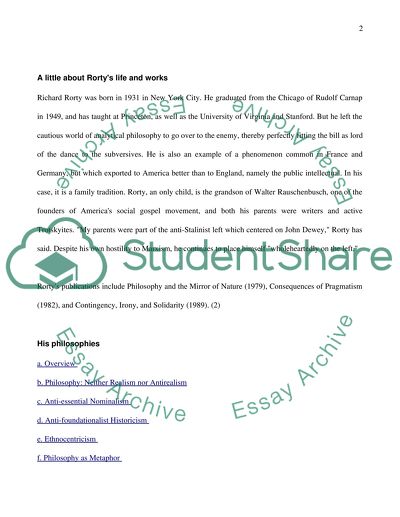Cite this document
(American Pragmatist Philosopher Richard Rorty and His Impact in the Mo Term Paper, n.d.)
American Pragmatist Philosopher Richard Rorty and His Impact in the Mo Term Paper. Retrieved from https://studentshare.org/biographies/1546380-critically-assess-what-according-to-richard-rorty-the-pragmatist-says-about-truth
American Pragmatist Philosopher Richard Rorty and His Impact in the Mo Term Paper. Retrieved from https://studentshare.org/biographies/1546380-critically-assess-what-according-to-richard-rorty-the-pragmatist-says-about-truth
(American Pragmatist Philosopher Richard Rorty and His Impact in the Mo Term Paper)
American Pragmatist Philosopher Richard Rorty and His Impact in the Mo Term Paper. https://studentshare.org/biographies/1546380-critically-assess-what-according-to-richard-rorty-the-pragmatist-says-about-truth.
American Pragmatist Philosopher Richard Rorty and His Impact in the Mo Term Paper. https://studentshare.org/biographies/1546380-critically-assess-what-according-to-richard-rorty-the-pragmatist-says-about-truth.
“American Pragmatist Philosopher Richard Rorty and His Impact in the Mo Term Paper”, n.d. https://studentshare.org/biographies/1546380-critically-assess-what-according-to-richard-rorty-the-pragmatist-says-about-truth.


